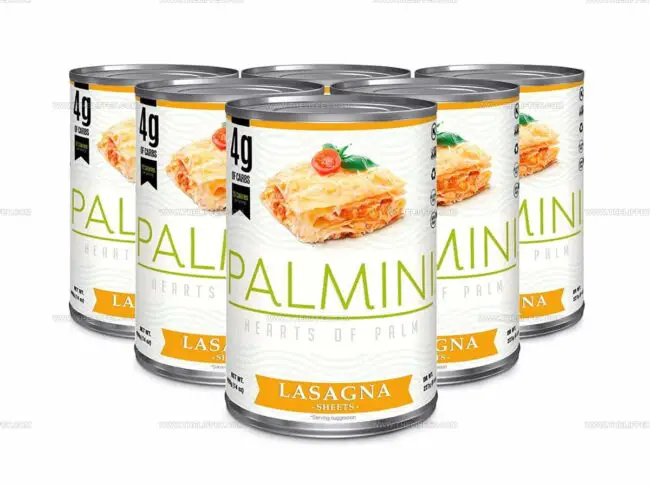4 Cottage Cheese Used in Place of Ricotta
Cottage cheese is a versatile and affordable ricotta substitute that brings mild flavor and creamy texture.
Blending cottage cheese smooths out its curds, mimicking ricotta’s consistency in lasagna, stuffed pasta, and desserts.
It offers a lighter, higher-protein option, appealing to health-conscious cooks.
While the taste is subtly different, the overall dish remains rich and satisfying.
Adjust seasoning as needed to enhance flavor.
Many chefs appreciate this swap for its nutrition and ease of use.
Incorporate cottage cheese confidently when ricotta is out of reach.
When and Why Use Cottage Cheese Instead of Ricotta
Cottage cheese can step in for ricotta cheese in many recipes and bring its own set of benefits to the table:
Cottage Cheese in Place of Ricotta
Light creaminess is still achievable when cottage cheese replaces ricotta, with some swaps bringing extra tang or protein. Both savory and sweet dishes can benefit. Various options could become your go-to.
Lasagna
Substituting cottage cheese for ricotta in lasagna has become increasingly popular among health-conscious cooks since it offers more protein with fewer calories.
Many lasagna lovers can't even tell the difference as both cheeses create that creamy, comforting layer that makes the dish so satisfying.
For best results, simply use the same amount of cottage cheese as the recipe calls for ricotta, maintaining the original texture and flavor profile.
Some home cooks prefer to drain or blend the cottage cheese first to more closely mimic ricotta's consistency.
This simple swap works wonderfully in other Italian favorites too, like stuffed shells or cannelloni, giving you a nutritious alternative without sacrificing taste.
Omelet
Ricotta cheese might be missing from your kitchen, but cottage cheese makes a perfect swap in your omelet recipe.
The larger curds of cottage cheese create a firmer texture compared to the softer, slightly runny consistency of ricotta.
Simply add the same amount of cottage cheese as the recipe calls for ricotta, maintaining similar flavors without compromising taste.
This substitution keeps calorie counts comparable while providing similar nutritional benefits in your morning meal.
Home cooks appreciate this easy alternative because both cheeses blend well with other ingredients like herbs, vegetables, and meats in various breakfast dishes.
Spread
Cottage cheese makes an ideal spread for banana bread or toast, adding protein while keeping the flavor intact.
Many people enjoy this versatile cheese straight from the container without any preparation needed.
For a more sophisticated option, mixing cottage cheese with sour cream creates a deliciously creamy texture that elevates any bread or cracker.
The addition of chopped walnuts brings a satisfying crunch while complementing the cheese's mild flavor.
This simple spread takes just minutes to prepare but delivers impressive results that can replace traditional butter or cream cheese in most recipes.
Cheesecake
Swapping cottage cheese for ricotta in your dessert creates a healthier, more satisfying treat while keeping calories lower.
Many people actually prefer the unique texture cottage cheese adds to cheesecakes, making it a smart substitution that doesn't sacrifice flavor.
The recipe remains exactly the same - simply use equal amounts of cottage cheese where ricotta is called for.
This simple change provides extra protein and nutrition without compromising on the creamy consistency everyone loves.
Most guests won't even notice the difference between the two cheese options when they're enjoying their delicious slice.
Tips for Draining or Blending Cottage Cheese to Mimic Ricotta
If you want cottage cheese to take the place of ricotta in your favorite recipes, a few easy tricks can help you get the right texture and flavor:
Draining For Less Moisture
Line a mesh strainer with cheesecloth or a coffee filter, pour in the cottage cheese, and let it drain over a bowl for 30 minutes to an hour to remove excess liquid for a firmer texture.
Pressing Gently
To get even drier cheese, gently press the cottage cheese with a spoon or spatula while it’s in the strainer. Avoid crushing it completely, just enough to squeeze out the watery parts.
Blending For Smoothness
For a creamy, ricotta-like texture, blend the drained cottage cheese in a food processor or blender until silky and thick; this takes about 30 seconds and enhances smoothness.
Season To Taste
After draining or blending, add a pinch of salt or a squeeze of lemon juice to introduce a subtle tang and boost the flavor closer to that of fresh ricotta.
Chill Before Using
Refrigerate the drained and blended cottage cheese for a while to help it firm up, which improves its ability to hold shape in baked dishes or creamy desserts.
Try A Mix
For extra creaminess and mellow flavor, mix in a spoonful of plain Greek yogurt with blended cottage cheese, especially great for recipes like cheesecake or stuffed pasta.
Cottage Cheese as Ricotta Substitute: FAQs
1. How does the flavor of cottage cheese compare to ricotta?
Cottage cheese is milder and less creamy. Ricotta has a richer, smoother profile, but adding a bit of salt or blending the curds can help mimic it.
2. Can I use blended cottage cheese for a smoother texture?
Absolutely. Blending cottage cheese creates a creamier result that’s much closer to ricotta in both texture and visual appeal.
3. Is cottage cheese a healthier choice than ricotta?
Cottage cheese typically has fewer calories and more protein than ricotta, making it a great option for lighter meals or high-protein diets.
4. Will cottage cheese change the taste of baked goods?
Slightly. It may add a bit more tang and moisture, but it usually blends in well, especially in casseroles, muffins, or stuffed pasta.
5. Can I use cottage cheese in desserts that call for ricotta?
You can, though it may not be as rich. Blending it smooth and mixing with a bit of cream or sugar can help adapt it for sweet recipes.
6. Do I need to adjust measurements when substituting cottage cheese for ricotta?
No major changes are needed. You can typically substitute it in a 1:1 ratio, just be sure to drain or blend as needed for consistency.





John Conley
Founder & Culinary Storyteller
Expertise
Recipe Development, Culinary Writing, Home Cooking Techniques, Seasonal Ingredient Utilization
Education
Lane Community College, Eugene, OR
Certificate in Culinary Arts
Focused on foundational cooking techniques, kitchen safety, and menu planning.
Gotham Writers Workshop, New York, NY
Course in Food Writing
Explored the art of crafting engaging culinary narratives and recipe development.
John grew up where food meant connection: big bowls, warm kitchens, and meals that told a story. After earning his Certificate in Culinary Arts from Lane Community College and diving deep into food writing at Gotham Writers Workshop, he found his calling: turning everyday recipes into something worth savoring.
At The Liffey, John’s focus is all about crafting dishes that feel easy, honest, and full of heart.